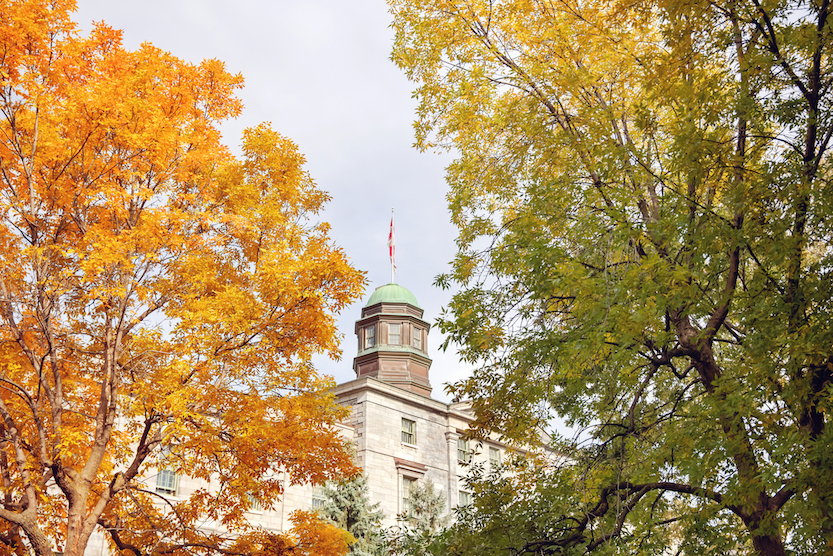After the August heatwave, September promised to bring fall weather, pumpkin spice lattes, and the ability to wear full-length pants outside of the house. And for a while, it did: Jeans walked the campus roads; cardigans thrived. But then, the average temperature rose to around 20 degrees Celsius, bringing with it a fashion dilemma: What to wear when it is too hot for pants, yet too cold for shorts. This ambiguous, 20-degree mid-point between seasons mirrors McGill’s hybrid learning model. With the model threatening to freeze their personality development, students must make an effort to make the most of this fall’s ever-changing circumstances.
Whether it is sprinting to the library from the Stewart Biology Building to make it to an online Zoom lecture on time, or hiding in Starbucks from unexpected bouts of rain, students have adopted flexible mindsets and routines to adapt to this year’s unique challenges. University is a transitional period, a time of newfound freedom where many students begin to discover themselves as individuals. However, remote learning last year interrupted that process, and McGill’s hybrid model this year continues to present challenges, as most students have a mix of virtual and in-person lectures, tutorials, labs, and conferences. Although online learning may allow for flexible schedules and self-paced learning, a study published in PLOS ONE found that pandemic learning has disrupted many important neurological processes in college students, particularly personality development.
Now that in-person classes have recommenced, the social aspect of learning has returned, accompanied by a harsh mental distinction between online and in-person classes. Hybrid schedules make it difficult to experience either to the fullest extent. Furthermore, much like how sunshine can disguise a chilly day, this balancing act can cause dissonance between the desired, idyllic school experience and reality. While university is usually a place where students discover their own identities, yet when personality development is inhibited, they tend to mirror the traits of others in proximity, rather than cultivating unique personalities.
Isolation has been proven to exacerbate introverted tendencies and can make it difficult for students to switch between virtual Zoom classes and pre-recorded lectures, let alone contribute to participation marks at in-person classes. Pandemic fatigue and academic burnout further discourage participation. However, taking part in educational settings shapes students’ personality development and other non-cognitive skills.
In 2013, a study discovered that a positive sense of self in adolescents is often associated with psychological growth and personality development. This was also found to be correlated with increased emotional stability and personal autonomy. The pandemic, and now hybrid learning, has forced students to surrender to life’s unpredictability, dismantling routines and even sense of belonging. These changes emphasize the uncertainty that is living through a pandemic; but just like flash rainstorms, sometimes the unexpected can lead to transformative and memorable experiences. Students should adopt a mindset of radical acceptance and understand that life is unpredictable, but change, and its effect on the psyche, should be appreciated.
McGill is difficult to navigate without a pandemic, but luckily, personality and self-discovery are neurologically flexible traits that are only enriched by experiences. So, much like the ambiguity of 20-degree weather, hybrid learning will leave students sweaty, confused, and wishing they had checked the weather app one more time.







